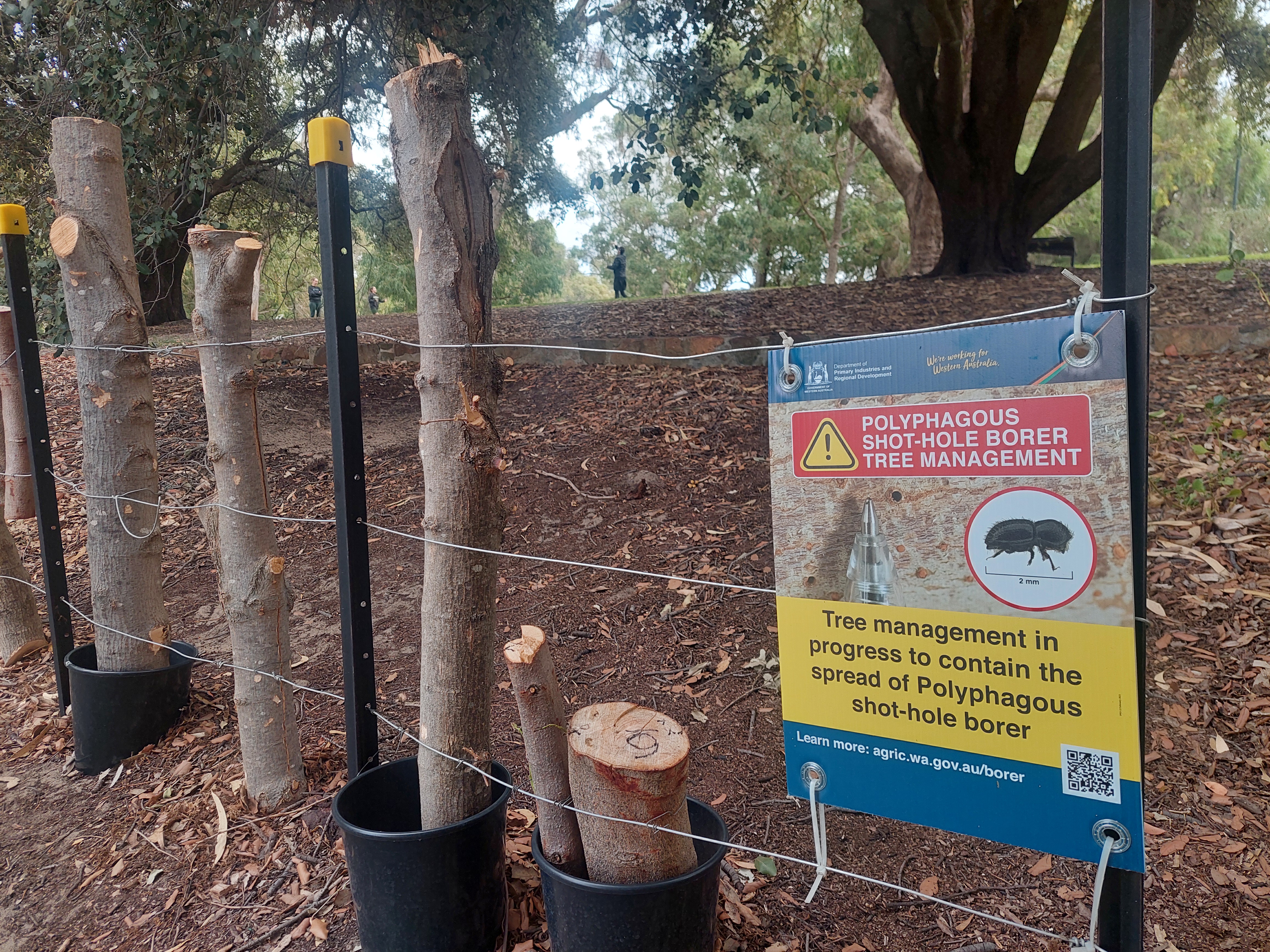Saving our trees: improving methods of detecting and trapping the tiny Polyphagous Shothole beetle
Overview
Polyphagous Shothole Borer (PSHB; Euwallacea fornicatus) is a sesame seed sized beetle native to Southeast Asia that has recently arrived in Australia – initially detected in East Fremantle. The borer is a plant pest – it bores into tree trunks, stems, and branches where It cultivates a fungus as a food source. This fungus can destroy the vascular tissue of the tree, leading to the tree’s death. PSHB is spreading through Perth, infecting trees and contributing to the loss of our urban canopy cover As of September 2024, PSHB has only been detected in the Perth metropolitan area.
Containment of PSHB is critical to prevent detrimental impacts to an array of native and agricultural species of plants. Early detection of PSHB when it arrives in a new location is key to ensuring an effective biosecurity response. WA’s Department of Primary Industries and Regional Development are working on the detection and containment of PSHB.
This project will work with government and industry partners and collaborators to examine improved methods for trapping and detecting PSHB to determine the most efficient, reliable method, and will contribute to the development of guidelines on PSHB detection.

Aims
This project will compare different methods for detecting and trapping PSHB. It will involve two key components:
- Fieldwork to examine improved methods for trapping and detecting PSHB.
- Desktop analytical work.
Significance
The guidelines on PSHB detection that will be developed through this project will be of value to a range of stakeholders from local government, to state government, and industry groups.
Candidate growth and outputs
The candidate will gain field experience in a biosecurity response. They will develop networks with government and iundustry partners. The candidate will also gain valuable experience with sampling design, data analysis, and reporting
How to apply
Candidates must have:
- A strong track record in undergraduate studies;
- A background or keen interest in ecology or conservation.
Send enquiries to Ben Phillips.